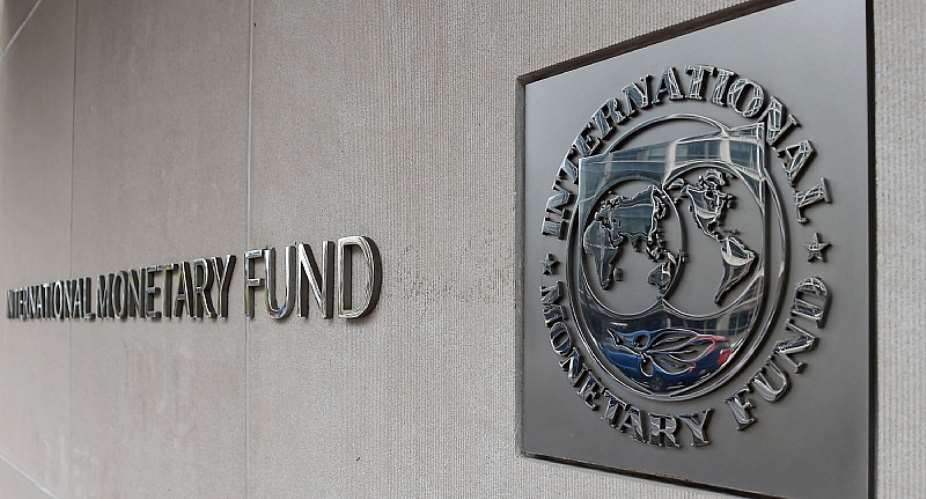It is usual for countries to resort to the International Monetary Fund (IMF) to resolve their balance of payment, and other fiscal challenges. It is therefore not surprising for Ghana to rely on the International Monetary Fund to resolving its economic challenges temporarily. The solutions that are mostly proffered by the Fund are not in themselves immune to flaws.
That is why Ghana, like many other countries, has not learnt economic and development centered behaviours that can adequately address the fundamental structural problems. Ghana for instance, returned from the Fund a couple of years ago but had not learnt any fiscal and monetary behavioural change lessons from the program it joined.
It then means that turning to the international financial institution for policy credibility does not provide adequate learning experiences for managers of the Ghanaian economy. The country returns to difficult, and sometimes very dire financial situations after the completion of a program of the Fund. Perchance, this often happens because the economy is not resilient to both internal and external shocks.
The past administration turned to the IMF for policy credibility and financial support because of the impacts of the energy crisis experienced in the country at the time. There could be other reasons for joining the IMF program in 2014/2015 than just the energy crisis, dumsor. Currently, the country is returning to the IMF principally because of the consequences of Covid-19 and the Russia-Ukraine war. While the impacts of the two events cannot be discounted as negatively affecting economies globally, countries with strong economies are marginally hit by the same events.
The austerity measures that will be used to instill fiscal discipline in Ghana must not be discarded years after exiting the program. The experience, over the years, is that after a successful completion of an IMF program, the country engages in fiscal activities that put unnecessary strain on its budget.
This is parallel to a patient that visits a specialist for diagnosis and treatment of a particular ailment. Several days after completing the prescription, the patient resumes some life behaviours that will revive the ailment treated by the specialist. The IMF should be a platform for countries to learn fiscal discipline for managing their economies permanently, and not only when they join a program of the Fund.
If the International Monetary Fund’s austerity measures are adequately corrective for economies, the managers of various economies should not only wait to implement same measures under a program of the Fund but execute such measures even after exiting its programs.
Just like foreign aid, economic growth and development in many countries in Africa are not elastic to the many policies of the Fund. Ghana, for instance, has benefited considerably from the Fund’s policies but can only show little to no results. The IMF’s policies are therefore not effective to address the fundamental structural problems of Ghana.
The goal of the IMF is to focus its conditionalities on reforms that are critical to economic success by ensuring that countries follow policy approaches strictly, which are relevant to their circumstances. The tools that are often deployed to achieve this goal are flawed as the governments and the Fund itself cannot pinpoint the actual underlying causes of the economic challenges of the countries that access its policies.
A more useful approach to solving the structural problems of countries is to develop a local austerity model, which must be a blend of the International Monetary Fund’s austerity measures and home-grown economic policies that tackle the basic causes of the challenges member countries of the Fund are exposed to.
A policy approach targeted at addressing the accumulation of massive fiscal imbalances, ways of raising growth performance, ways of increasing food production, practical measures for managing the public debt of the country and exchange rates etc. needs to be developed by Ghana after exiting the program:
Countries that refuse to systematically adhere to the prescribed routine policy behaviours for managing their economies will always visit the Fund for policy advice and credibility. Ghana will always run to the Fund for policy credibility and financial support if it continues to stubbornly engage in unchecked fiscal programs that increase public spending and deficits excessively. The IMF is a financial diagnosis and prescription expert, if the symptoms persist after taking the prescriptions, you consult your doctor (Financial Specialist) – the IMF.
BY Emmanuel Kwabena Wucharey
Economics Tutor, Advocate and Religion Enthusiast.





 We’ll no longer tolerate your empty, unwarranted attacks – TUC blasts Prof Adei
We’ll no longer tolerate your empty, unwarranted attacks – TUC blasts Prof Adei
 Bawumia donates GHc200,000 to support Madina fire victims
Bawumia donates GHc200,000 to support Madina fire victims
 IMF to disburse US$360million third tranche to Ghana without creditors MoU
IMF to disburse US$360million third tranche to Ghana without creditors MoU
 Truck owner share insights into train collision incident
Truck owner share insights into train collision incident
 Paramount chief of Bassare Traditional Area passes on
Paramount chief of Bassare Traditional Area passes on
 Two teachers in court over alleged illegal possession of BECE papers
Two teachers in court over alleged illegal possession of BECE papers
 Sunyani: Victim allegedly shot by traditional warriors appeals for justice
Sunyani: Victim allegedly shot by traditional warriors appeals for justice
 Mahama vows to scrap teacher licensure exams, review Free SHS policy
Mahama vows to scrap teacher licensure exams, review Free SHS policy
 Government will replace burnt Madina shops with a new three-story, 120-store fac...
Government will replace burnt Madina shops with a new three-story, 120-store fac...
